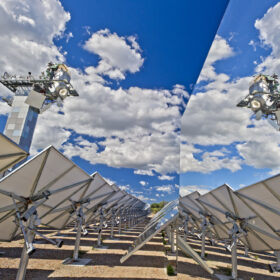Sparc Technologies Green Hydrogen Pilot Plant Advancements in South Australia
Key Ideas
- Sparc Technologies' green hydrogen pilot plant in South Australia is set to start construction in early 2025, utilizing photocatalytic water splitting technology powered by a concentrated solar system.
- The project involves a joint venture between Sparc Technologies, University of Adelaide, and Fortescue, showcasing a strong commitment to advancing green hydrogen technology.
- The pilot plant aims to become a leading facility for research, development, and commercialization of photocatalytic water splitting, potentially revolutionizing the production of green hydrogen.
- Advantages of the pilot plant include reduced energy costs, as it relies solely on sunlight for hydrogen production, positioning South Australia as a competitive hub for innovative hydrogen technologies.
Sparc Technologies, based in South Australia, is making significant progress with its green hydrogen pilot plant project scheduled to begin construction in early 2025. The project, located 60 kilometers north of Adelaide at the University of Adelaide's Roseworthy campus, focuses on developing next-generation hydrogen systems powered by photocatalytic water splitting technology. This innovative process eliminates the need for electrolyzers and relies on a linear Fresnal concentrated solar system for operation. The Stage 2 commitment to the project has been finalized with investments from Sparc Technologies and Fortescue. Sparc's Managing Director emphasized the technology's potential to produce low-cost green hydrogen without traditional infrastructure requirements. The pilot plant's development will include reactor testing, laboratory experiments, and the evaluation of photocatalytic water splitting under various conditions. Through this initiative, the partners aim to establish a global research and commercialization facility for this emerging direct solar to hydrogen technology. The University of Adelaide's involvement in this project, based on the research work of Professor Greg Metha, underlines the commitment to advancing photocatalytic water splitting technology. The project's key advantages include the ability to produce green hydrogen without electricity, reducing production costs and enhancing competitiveness in the energy market. By stress-testing catalysts and collaborating with international partners, the project aims to position South Australia at the forefront of innovative hydrogen technologies.
Topics
South America
Renewable Energy
Innovation
Energy Transition
Research And Development
Collaboration
Solar Technology
University Partnership
Pilot Plant Construction
Latest News
